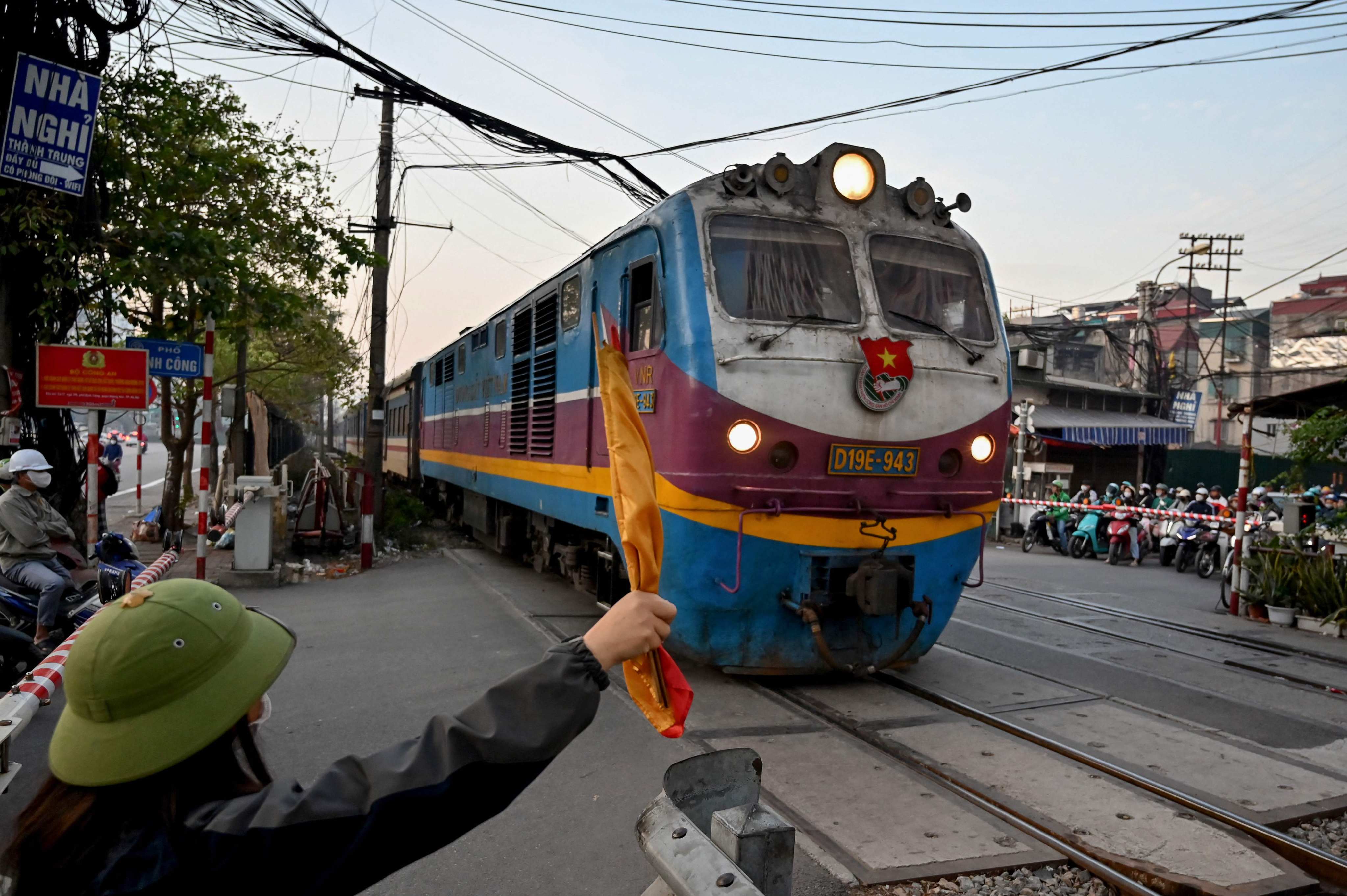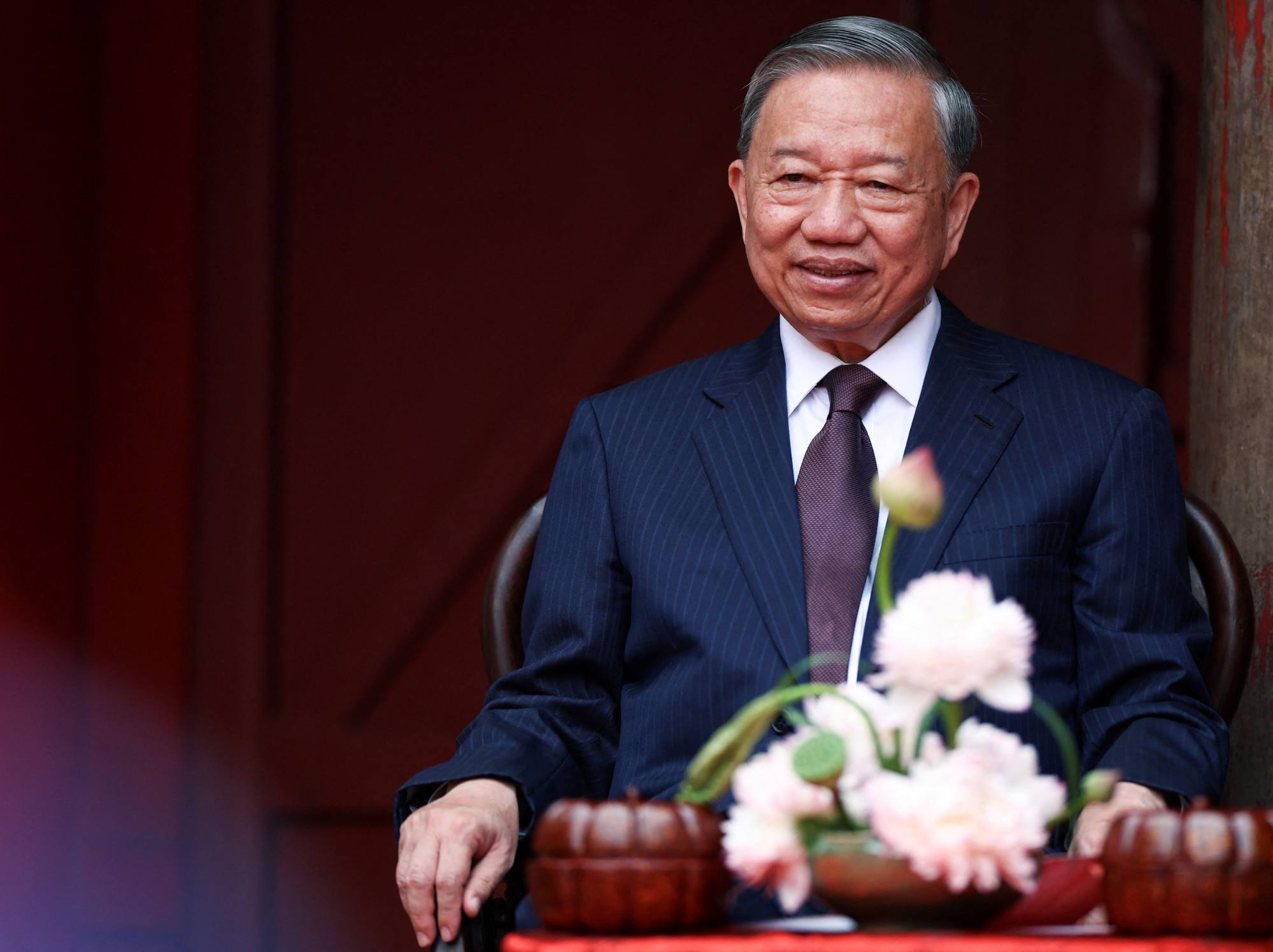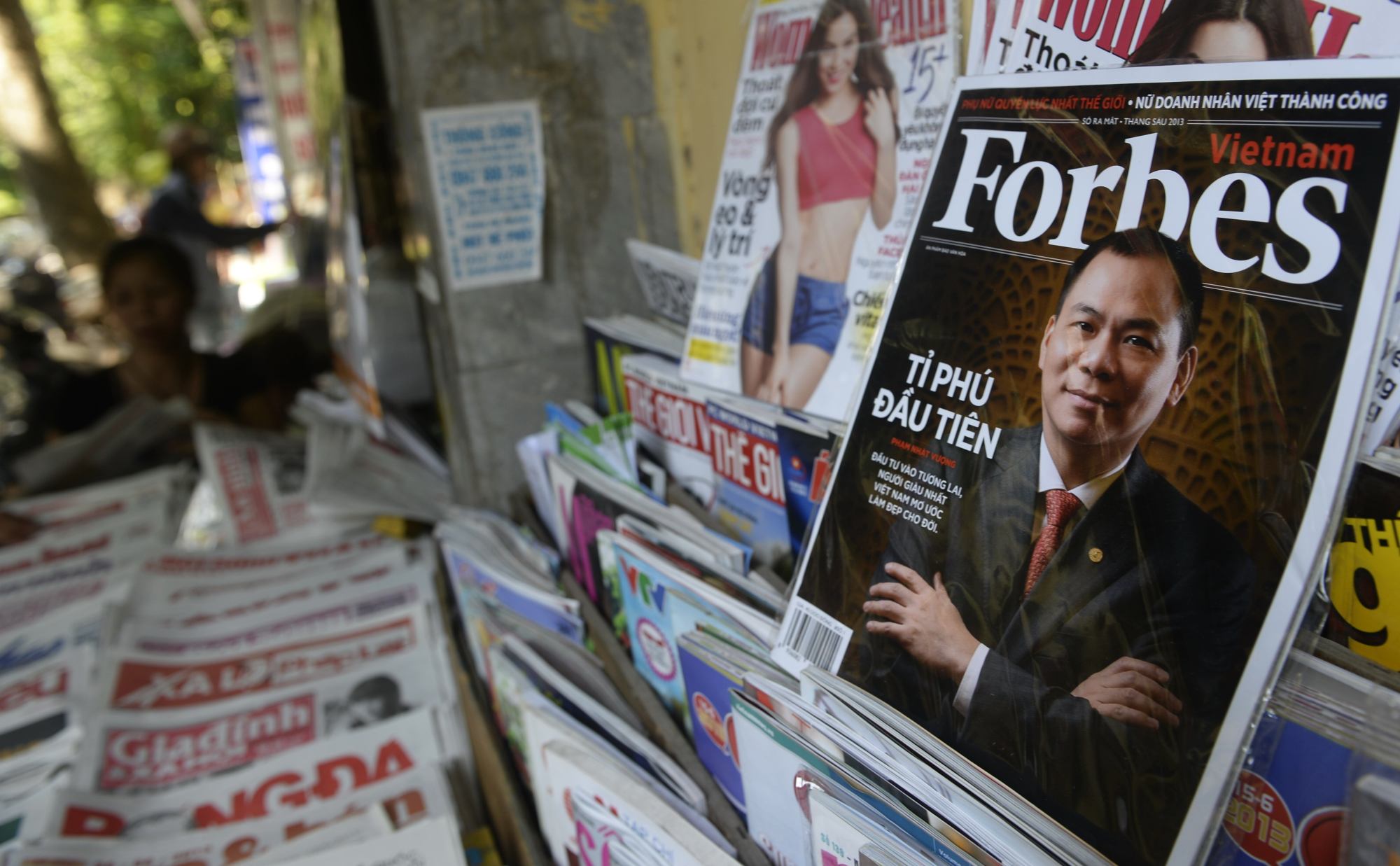The US$67 billion question: who will fund Vietnam’s North-South express railway?
Vingroup and Thaco’s proposals to build the Hanoi-Ho Chi Minh City high-speed rail line both demand substantial state support

Two of Vietnam’s largest conglomerates are vying to lead the country’s largest infrastructure project to date: a US$67 billion high-speed railway linking the northern capital, Hanoi, with the southern economic hub of Ho Chi Minh City.
Vingroup and Truong Hai Group Corporation (Thaco) have entered bids to build the more than 1,500km (930-mile) North–South high-speed rail line. But both are seeking substantial state support – either in the form of massive interest-free loans or government-backed financing.
The proposals have raised questions about the potential for cost overruns and the risk of Vietnamese taxpayers ultimately footing the bill.
Originally proposed in 2010, the high-speed rail project was rejected by the National Assembly at the time due to its prohibitive cost.
But after more than a decade of rapid economic growth, the government approved the plan in November as part of an effort to modernise Vietnam’s colonial-era railway system and propel the nation “into a new era of growth”, according to a statement from the transport minister.

The proposals, submitted last month, followed Communist Party chief To Lam’s pledge to boost the country’s private sector amid intensifying regional competition for large-scale infrastructure contracts – including from Chinese state-backed giants that dominate high-speed rail development across the Mekong region.
But observers warn that the billions of dollars in government financing sought by the two local conglomerates could pose serious risks for Vietnam and its leadership.
“This is a very, very important project in regards to the future of Vietnam,” said Nguyen Khac Giang, a visiting fellow at Singapore’s ISEAS-Yusof Ishak Institute whose research interests include Vietnamese politics.
He described the scale of the proposed railway as “outstanding” and warned that the total cost could rise to as much as US$100 billion.
“If this project is to have any problems – even the smallest problem – there could be huge costs to the Vietnamese economy and the stability of the regime,” he added.
Twin tracks
Vingroup – Vietnam’s largest conglomerate run by its richest man, Pham Nhat Vuong – was the first to express interest in building the railway, despite having no prior experience in railway construction.
Vuong founded subsidiary Vinspeed in early May “with the goal of developing the high-speed rail industry in Vietnam”, the group said in a statement to This Week in Asia.
While Vuong built his fortune in real estate, Vingroup has since diversified into nearly every sector of the economy, including education, healthcare, hospitality and technology. He is also CEO of VinFast, Vietnam’s first global car brand, which has struggled abroad, posting a US$3.2 billion loss last year.
Undeterred, Vuong’s new railway venture aims “to complete the entire route by December 2030 – just five years from the start of construction, pending approval,” Vingroup said. If successful, it said it would also operate the railway and develop residential estates along the line.
The company is in talks with “advanced rail” players in China, Germany, Japan and Spain with the “aim of facilitating technology transfer”, and estimates its proposal could reduce the overall project cost by about US$6 billion.

However, Vinspeed is offering to cover only 20 per cent of the cost and is seeking an interest-free government loan for the remaining 80 per cent – roughly US$49 billion – over a 35-year term.
“A zero per cent interest loan over 35 years would be unprecedented,” said public policy adviser Rich McClellan, founder of RMAC Advisory in Hanoi. “It’s an ambitious proposal and a bold statement of confidence from Vingroup.”
Following weeks of scrutiny over the proposal’s funding mechanism, timeline and Vingroup’s lack of rail expertise – as well as concerns about the conglomerate’s growing influence – rival Thaco entered the fray with a competing bid on May 27.
Unlike Vingroup, Thaco, which specialises in vehicle manufacturing, proposes raising 80 per cent of the funds through loans from domestic and international banks. However, it is also seeking government guarantees on those loans and requesting that the state cover interest payments for 30 years.
Both companies want the state to oversee land clearance and related costs.
“The fact that Thaco has entered the mix is a healthy development,” McClellan said. “It signals that Vietnam is taking a more competitive, pluralistic approach.”
Divisive bids
Vinspeed’s proposal was intentionally leaked in mid-May to informally gauge public reaction to a company that continues to polarise opinion, a Ho Chi Minh City-based businesswoman with knowledge of the bid told This Week in Asia.
“It was not leaked as an accident,” she said, requesting anonymity due to the sensitivity of the matter.
While acknowledging widespread criticism of Vinspeed’s funding model, aggressive timeline and lack of railway experience, she expressed confidence in Vuong’s vision.
“Vuong constantly pushes for big projects, megaprojects, or for the mission impossible to be done,” she said. “I really trust and respect his ambition.”
Still, concerns over the financial risks remain.
If companies know they are using public funds and are shielded from interest rate risk, they may lose incentives to control costsDo Thien Anh Tuan, economist
Do Thien Anh Tuan, an economist at Fulbright University Vietnam in Ho Chi Minh City, warned that Vinspeed’s request for the state to cover 80 per cent of the project’s cost could create a “massive public debt burden”.
If the government were to issue bonds to finance the loan, “the entire amount would become public debt”, he said.
“There’s also a moral hazard,” he added. “If companies know they are using public funds and are shielded from interest rate risk, they may lose incentives to control costs.”
Others have raised safety concerns. A young Ho Chi Minh City resident said whistle-blowers alleging safety issues with VinFast vehicles had been dismissed for sharing their concerns online.
“To be honest, I’m even afraid to step into a VinFast [car], let alone the high-speed train invested in by Vinspeed,” he said, requesting anonymity.
Giang, the analyst, said public opinion on Vingroup was sharply divided, with critics accusing the conglomerate of cronyism and excessive influence over the state.
But he welcomed Thaco’s entry into the bidding process, suggesting that it could lead to Vietnam’s top conglomerates ultimately collaborating on the megaproject.
“We might end up seeing these companies working together,” he said.